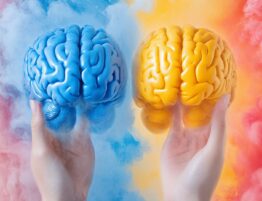Everyone dreams of living a quality and happy life. To do this, you need to take care of your health and maintain regular physical activity. A healthy body can function fully and allow a person to enjoy life. During sports, the body receives nutrients that nourish the brain. For neurological health, physical activity is an ideal tool. Light exercises or strength training improve blood circulation for brain health. Everyone can find their physical activity that will bring not only benefits but also pleasure. Regular exercise will support the health of the brain and the body as a whole.
Physical exercise is a way to improve both your external and internal health. They play a crucial role in the functioning of the brain and improving cognitive functions. A person who exercises is less likely to get Alzheimer’s or Parkinson’s disease. Good activity helps supply oxygen and nutrients to the brain. Being active helps improve a person’s neurological condition. Everyone can devote a little time during the day to sports and feel energized.
How Physical Exercise Supports Cognitive Function and Prevents Decline
Physical exercise on a regular basis has a significant impact on cognitive health. Physical activity plays a vital role in slowing down neurological decline. Exercise helps to maintain the functions of the whole body and takes care of brain health. A great benefit of exercise is an increase in blood supply to the brain. During activity, a large amount of oxygen enters the brain. With it, the brain receives more nutrients and increases blood flow. A significant advantage is the maintenance of healthy neural activity. Sport plays a key role in maintaining brain function.
- It has been clearly proven that good physical activity helps to increase blood flow to the brain. In addition, exercise helps stimulate neurogenesis and the growth of new neurons. Sometimes, a person can notice changes in memory and their improvement. Learning becomes more manageable, and a person develops critical thinking. Regular exercise helps to increase and improve the growth of new neurons and preserve the nervous system.
- Physical activity is critical against cognitive decline. Regular exercise helps reduce the risk of neurodegenerative diseases. Often, people who exercise regularly avoid Alzheimer’s disease, dementia, and Parkinson’s disease. Physically active people suffer less from headaches, cognitive impairment, and memory loss.
Enhancing Brain Function Through Regular Exercise
Regular physical activity helps to improve brain function. Over time, a person notices great benefits in memory, mental clarity, and cognitive abilities. Improved blood flow delivers oxygen and all the necessary substances to the brain. Physical activity plays a vital role in improving certain bodily functions. Here are its main characteristics:
- Memory. Thanks to increased blood flow to the brain, it receives the necessary amount of oxygen. Improved blood circulation helps to strengthen nerve pathways, thereby preserving memory.
- Concentration. Cognitive decline is dangerous for a person in the long term. Physical activity improves the release of dopamine and serotonin, which regulate mood. Thanks to this process, a person’s concentration and general condition improve.
- Clarity of mind. Physical activity helps to reduce the production of harmful proteins and promotes neuronal release. Good oxygen levels for the brain are essential for improved learning. A person has mental clarity and can make constructive decisions.
Different types of physical activity are suitable for the body as a whole. Physical exercise is a good tool for maintaining the health of the whole body and clarity of mind and brain. Here are the main exercises that are useful and have their benefits:
- Aerobics. Aerobics includes running, swimming, and cycling, which are suitable for the body. These exercises improve blood flow to the brain and improve oxygen delivery. Aerobics is a good tool for preserving memory and cognitive abilities. Brain function can work properly and improve new neural connections.
- Strength training. Strength training is an integral part of cognitive health. It improves concentration and memory and reduces stress and depression. Strength training helps to reduce cortisol levels, a stress hormone that is dangerous for humans. Combining strength training with aerobics is an excellent tool for staying healthy.
Aging Prevention: The Role of Exercise in Maintaining Brain Health
LoneStarNeurology is dedicated to providing support to people in need. We will help you treat neurological conditions and feel relief. Physical activity can improve your health. Exercise enhances overall well-being and are excellent strategies for aging prevention. Regular exercise helps to slow down the aging process of the brain. Cognitive functions are preserved, and the risk of neurodegenerative diseases is reduced.
- A significant advantage of sport is the improvement of cardiovascular health. During aerobics or strength training, the brain receives oxygenated blood. It carries all the nutrients that affect the brain. Improved circulation helps to reduce various inflammations and maintain cognitive abilities. Neurological health is essential, and sports help to keep it.
- Physical activity helps regulate stress hormones that are dangerous for humans. Reducing them helps to reduce the aging of the brain and the entire body. People who exercise regularly look younger and have healthier bodies. Physical activity improves mental clarity, body structure, and overall physical well-being. An equally important benefit is a reduced risk of anxiety, stress, and depression. Physical activity is an effective way to slow down aging and maintain health.
The Science Behind Exercise and Brain Health
The science behind physical exercise shows its benefits for brain health. Biological mechanisms are responsible for the entire process of rejuvenation and health improvement. Activity is essential for better body functioning and cognitive preservation. Here are the main benefits of regular physical activity:
- Neuroplasticity. The most important mechanism in our body is neuroplasticity. During sports, the brain receives the necessary amount of oxygen with nutrients. It can better adapt to reorganize and form new neural connections. Sport improves neuroplasticity and helps maintain neurological health.
- Release of growth factors (BDNF). BDNF is a protein that supports neuron survival and neuronal maintenance. It improves plasticity and strengthens connections between brain cells. This process enhances memory and cognitive abilities during sports. Studies show that people who exercise often have better health. They have a lower chance and risk of developing neurodegenerative diseases.
- Impact on key areas of the brain. Physical exercise has an impact on the hippocampus, which is responsible for memory and learning. During sports, the hippocampus receives all the necessary nutrients and oxygen. This reduces the risk of memory loss and neurodegenerative diseases. Sports also have an impact on the prefrontal cortex, which is responsible for decision-making. Often, people who exercise regularly have improved concentration and can solve any problem. Sport increases the production of dopamine and serotonin, which improve mood.
Recommended Exercise Routines for Better Neurological Health
Physical activity is essential to maintaining and improving neurological health. Sports can be different and easier depending on the age and condition of the person. Exercise can help support brain health and improve cognitive abilities. Here is their main characteristic and impact on health:
- Aerobic exercise. Aerobic exercise is a great way to improve health for all ages. They can include dancing, walking, running, or cycling. These exercises help increase blood flow to the brain with nutrients. For young and middle-aged people, longer workout sessions are appropriate to maintain neurological health. Exercise for about two hours at a moderate speed or an hour for intense training. For older people, the recommended exercise time is about 30 minutes.
- Strength training. Strength training is a great way to improve neuroplasticity and reduce stress. They help release bad protein that affects brain health. For younger and middle-aged people, it is best to do it two to three times a week. For older people, once a week of strength training will be enough. Physical exercise will help improve muscle strength and brain function.
Yoga, pilates, and meditation help maintain mental clarity. These exercises can be done at any age several times a week. They improve concentration and mental clarity. People who do the exercises are less stressed and depressed. For older people, yoga can help improve mobility and promote relaxation.
Making Physical Exercise Part of Your Daily Routine for Long-Term Brain Health
Physical exercise is an effective method for the health of every person.. You will help maintain your health and brain health in general. It will reduce aging and improve your memory and cognitive abilities in the long run. Here are a few ways to stay motivated to exercise:
- Set achievable goals and devote a certain amount of time each day. You can spend 15-30 minutes exercising and incorporate it into your daily routine. Break it up into short sessions and find activities that you enjoy. You can improve your neurological health with exercises you enjoy. Consider yoga, swimming, dancing, or strength training, depending on your preferences.
- Create a support network among your friends, colleagues, or family. You can go to workouts together and support each other. Use fitness apps where you can track your workouts.
Don’t forget to change your lifestyle for the better. Maintain a healthy diet, exercise, and replace the elevator with stairs. You can take walks and enjoy nature at the same time. The maintain regular physical activity for your health and brain function.












Please, leave your review
Write a comment: